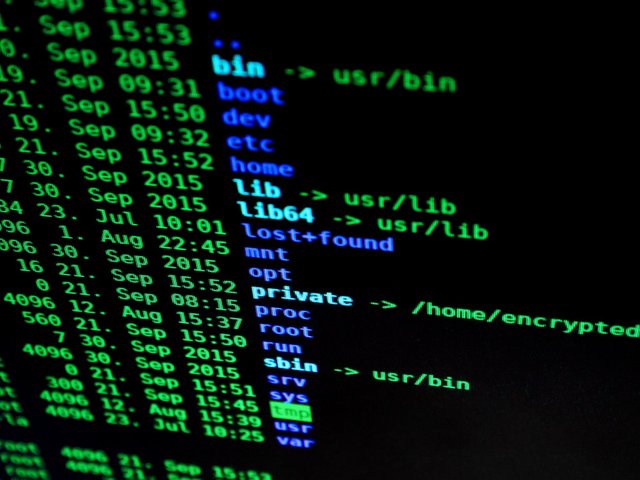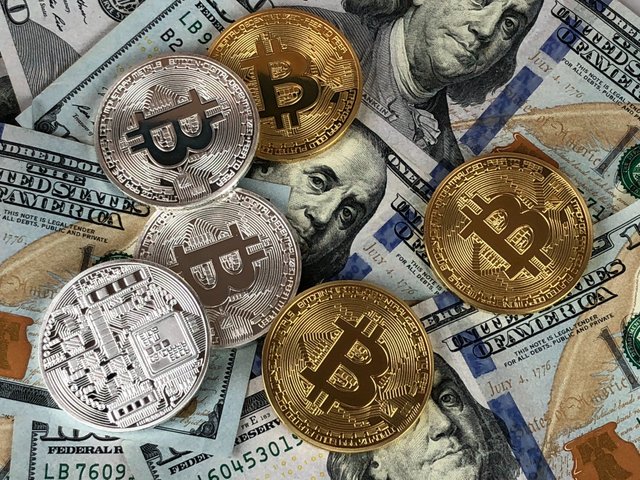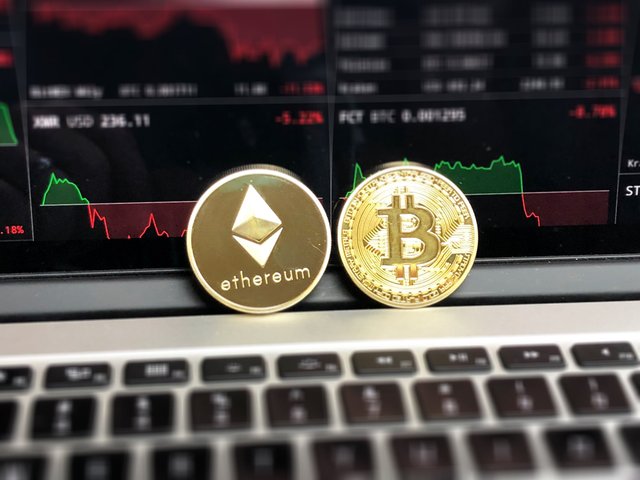Crypto Report: How Important Are Privacy Coins?

In 2017 cryptocurrencies received some major attention in the form of mass media coverage and corporate adoption and although many people may not know this yet but the total market cap grew from under 50 billion to over 500 billion USD in just the scope of a year! Thinking back to just a few years ago, not many people had heard about Bitcoin or seemed to have any idea about what it was. I remember hearing about it myself and I even looked into buying it before it had received much attention.
After researching what it was, how to buy it and how to store it I was a bit put off. I mean come on, I was required to keep a long string of code which was essentially a password and ownership key while trusting that this digital store of value would simply exist and remain in the cloud was a bit too much to accept at the time. Big mistake!
But 2017 was a huge year for the cryptospace! Some are even saying that this may have even been the single-greatest year for an asset class that history has ever seen. But what has contributed to the amazing growth of the cryptospace and why have I decided to dedicate this article to exploring a small niche within the larger industry, the importance of privacy cryptocurrencies?
Well in regard to the first part of my question, the rally in virtual currencies can be attributed to two major trends: the adoption of decentralized digital currencies "coins" accepted as a viable store of value and monetary exchange and the overall support of blockchain technology as a new paradigm for money transmittance.
I use some big words here so maybe it would be useful to simplify these thoughts and boil it down a bit more. Basically what I'm saying is that blockchain technology is so appealing because it can be used to create a digital currency that is completely in control of the masses while at the same time eliminating the need for a middleman.
The middleman I'm referring to is an entity like a bank. Many believe banks are the cause of endless wars and suffering and humanity would be much better off without them. This opinion aligns with my own philosophy and is supported by the knowledge I've gained studying modern history.

So now that I've discussed what cryptocurrencies are and why they have gained so much attention in the past few years, it's time to move on to the major focus of this article, privacy coins.
Well, many would argue that all cryptocurrencies should have some degree of privacy. And for the most part cryptocurrencies are designed with security and privacy in mind. For example, the majority of blockchains are decentralized, which means that there no main data center that cybercriminals can break into to hold a cryptocurrency hostage.
The majority of transactions conducted on blockchains are encrypted and they occur almost instantaneously across the globe 24 hours a day, seven days a week.
Now, people should know that when it comes to privacy, not all cryptocurrencies are built equally. Privacy coins have been around for a long time, some of the most famous being Monero and Dash (although I'd argue that Dash isn't very private at all after looking into it a bit more).
There are also several other lesser known privacy coins that I'd like to make people aware of in this article. People are starting to catch on that privacy is going to be very important in this new and emerging futuristic world driven by cryptocurrency transactions. Crypto is for the most part in direct competition with the currencies created by governments around the world.
Recently, a major celebrity in the cryptospace, MGT Investment's CEO John McAfee, the man who founded the company that created McAfee antivirus software in the 1980s and 1990s, has become a major supporter of privacy coins.

The privacy-coin trend takes the idea of bitcoin one step further in the sense that virtual coins can not just be the primary means of buying goods and services, but they also can provide anonymity and privacy in the way they handle transactions.
One of the bigger misconceptions associated with bitcoin is that its transactions are completely anonymous. While it's true that you can transact with bitcoin without having to provide your Social Security number or bank account, there's still data on the digital ledger that could potentially be linked back to you.
For instance, the Internal Revenue Service recently won a court case against cryptocurrency exchange Coinbase requiring it to hand over information on more than 14,300 users who'd exchanged more than $20,000 worth of bitcoin between 2013 and 2015. While the move was made so the IRS could possibly go after capital-gain tax evaders, the bigger theme here is that these transactions aren't as anonymous as they appear.
So, what can be learned from this situation is that Bitcoin is not a private currency and if you are in the business of handling cryptocurrencies, be aware that governments not only have the desire to monitor your activities but they have the ability to follow them to a certain extent.
Privacy coins are the evolution of the movement bitcoin helped create. They are developed to do what Bitcoin does while protecting your financial information from going public.
However, this article would be biased if I didn't also point out that privacy coins also represent a desirable financial instrument for cybercriminals to conduct their nefarious activities. This may be true but privacy-coin advocates are quick to point out that the number of illegitimate users is very small, and the benefits they present to legitimate users are nothing short of incredible.

Now, lets talk about specific privacy coins so you can get a basic understanding of the current playing field. The most popular privacy coin is Monero. Its gained a lot of traction and is currently the 11th-largest cryptocurrency by market cap, at nearly $5 billion.
Monero runs an open-sourced protocol known as CryptoNote, which is its primary source of anonymity. Most cryptocurrencies use an unchanging signature when verifying transactions, whereas Monero's CryptoNote uses ring signatures, which is similar to a joint bank account with multiple signers, but with the actual signer remaining unknown.
Monero is a solid privacy coin with a lot of room to grow in terms of market cap in my opinion. If governments start to crack down on cryptocurrencies, expect a lot of people to run to high ground. Expect them to trade up for Monero.
Another extremely popular privacy coin is Verge. I've known about this coin for quite some time and to be honest, like many others I wish I practiced the ancient art of HODL with this one but enough with the regrets…
Verge is possibly the best-performing cryptocurrency in the entire space. Between Dec. 31, 2016 and Dec. 23, 2017, Verge's coin (XVG) increased in value by more than 1,500,000%! This number still completely shocks and amazes me, doesn't everybody wish they were the lucky guy or gal that put 10,000 USD on this in Dec. of 2016 and simply forgotten about it?
Verge's secret sauce is that it relies on Tor and I2P networks in order to make IP addresses untraceable. Further, its Simple Payment Verification technology ensures transaction settlement in around five seconds, which is far and away better than many of its peers. With a number of secure mobile wallets already being offered, including the Tor Android Wallet, it's clearly a name (and coin) that's making a lot of noise.
I've looked into the technology behind Verge (XVG) and it is nothing short of amazing. Although they have a small development team they really know their stuff! I'd also imagine their development team has grown exponentially with their price so I'd expect this coin to be around for a very long time!
A few other privacy coins that are definitely worthy of mention include Dash, PIVX, Hush, Zcash, and Xios. All of these are worth loading up on as the possibility of government crackdowns on cryptocurrencies is very possible to say the least.

Now it seems prudent to mention the fact that even though the popularity of cryptocurrencies has increased exponentially over the last year along with their prices, it is a new and emerging market that presents a very high level of risk and volatility to investors.
This market faces many threats which include but are not limited to government regulations restricting or even banning cryptocurrencies, market manipulation by media and large corporations and many other threats I've yet to speak of or even imagine.
Most of my crypto portfolio was from investment made in Steem and SBD that I've earned right here on Steemit blogging about different topics. The thing I love most about this platform is its community. Anybody can be successful here if they work hard enough at it!
We are at the beginning of an amazing new age of digital currencies and we have the ability to mine them right here on Steemit through the creation and publication of quality content!
Please leave your thoughts and feedback below!
Thanks for reading.
Authored by: @techblogger
In-text citations source: Meet the Newest Cryptocurrency Trend: Privacy Coins - The Motley Fool
Image Sources: Pexels.com
--

I am a technology writer and marketing advisor for the ADSactly Society:

I'm proud to be a supporter, patron and builder of the @MinnowBooster @Steemvoter and @BuildTeam projects:

https://www.minnowbooster.com/vote-selling/?ref=1611


I don't know really.
On the one hand I can see the advantages of anonymous financial transactions.
On the other hand I have no doubt that this would be the perfect ground for money laundering, ransomware, blackmail, trafficking, etc...
We may not like banks but at least they are subject to some regulations.
Ultimately the financial crash wasn't caused by the banks but by a lack of regulations or lack of enforcement.
I'm all for cryptocurrencies but not so sure about bringing in anonymity.
Great post, this really makes us think about privacy and cryptocurrency indeed, awesome post!
Unlike monero verge has tiny fees and 5 second transaction time. Verge can be great for micro payments. But there are lots of haters of verge